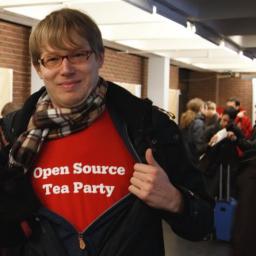
Some people have had enough, and they've organized a boycott at "
http://boycottsystemd.org" to organize efforts. From the top: "
Disclaimer: We are not sysvinit purists by any means. We do recognize the need for a new init system in the 21st century, but systemd is not it." OK, that's enough to keep me reading. They outline twelve well-thought-out reasons systemd is dangerous, and a set of ways you can get involved, including refusing to use systemd distros, moving to slackware, crux, gentoo, BSD, and more. Here's just one of them:
systemd clusters itself into PID 1. Due to it controlling lots of different components, this means that there are tons of scenarios in which it can crash and bring down the whole system. But in addition, this means that plenty of non-kernel system upgrades will now require a reboot. Enjoy your new Windows 9 Linux system! In fairness, systemd does provide a mechanism to reserialize and reexecute systemctl in real time. If this fails, of course, the system goes down. There are several ways that this can occur9. This happens to be another example of SPOF.
Interesting times. When's the last time you heard someone advocate moving immediately to Slackware or Gentoo?
 Some people have had enough, and they've organized a boycott at "http://boycottsystemd.org" to organize efforts. From the top: "Disclaimer: We are not sysvinit purists by any means. We do recognize the need for a new init system in the 21st century, but systemd is not it." OK, that's enough to keep me reading. They outline twelve well-thought-out reasons systemd is dangerous, and a set of ways you can get involved, including refusing to use systemd distros, moving to slackware, crux, gentoo, BSD, and more. Here's just one of them:
Some people have had enough, and they've organized a boycott at "http://boycottsystemd.org" to organize efforts. From the top: "Disclaimer: We are not sysvinit purists by any means. We do recognize the need for a new init system in the 21st century, but systemd is not it." OK, that's enough to keep me reading. They outline twelve well-thought-out reasons systemd is dangerous, and a set of ways you can get involved, including refusing to use systemd distros, moving to slackware, crux, gentoo, BSD, and more. Here's just one of them:
By the way, I had switched to Debian when Arch went systemd. What a joke that was: "don't worry, I promiss the regular init scripts will be maintained, you need not oppose systemd as default, do not be afraid, let us do" said one lead Arch developper. Less than 3 months later, he announced traditional init scripts would not be maintained any more. And he now works at RedHat! Really funny...
I considered and still consider moving to *BSD. But 20 years of Linux (15 years as main/only system) are a bit difficult to wipe. Dual booting is a bit annoying because *BSD and Linux do not support really well a common filesystem. Maybe running Linux in a VM on a BSD like some people run Windows in a VM on Linux, for the few applications requiring Linux. But I have the feeling that virtualisation software is not as well developped on *BSD as on Linux.
What worries me too is that, as someone else already pointed it, systemd seems like a shiny symptom of the tendancies of the last 5 or 10 years. Bloat, complexification, over-automatisation, hiding more and more stuff from the users (and from admins now), novelty for novelty, bad documentation (and never up-to-date because everything is changing too quickly), corporatisation (most pieces of software have been taken over by big corporations(RedHat, Canonical, Google, Apple, Oracle, Intel...), there is not much left to hobbyists, students, universities researchers). Basically all the things that I could complain about under Windows during the 90's and early 2000's and that made me enjoy and switch to the refreshing Linux. And I am afraid those tendancies would slowly contaminate the BSDs, starting with FreeBSD/PC-BCD.